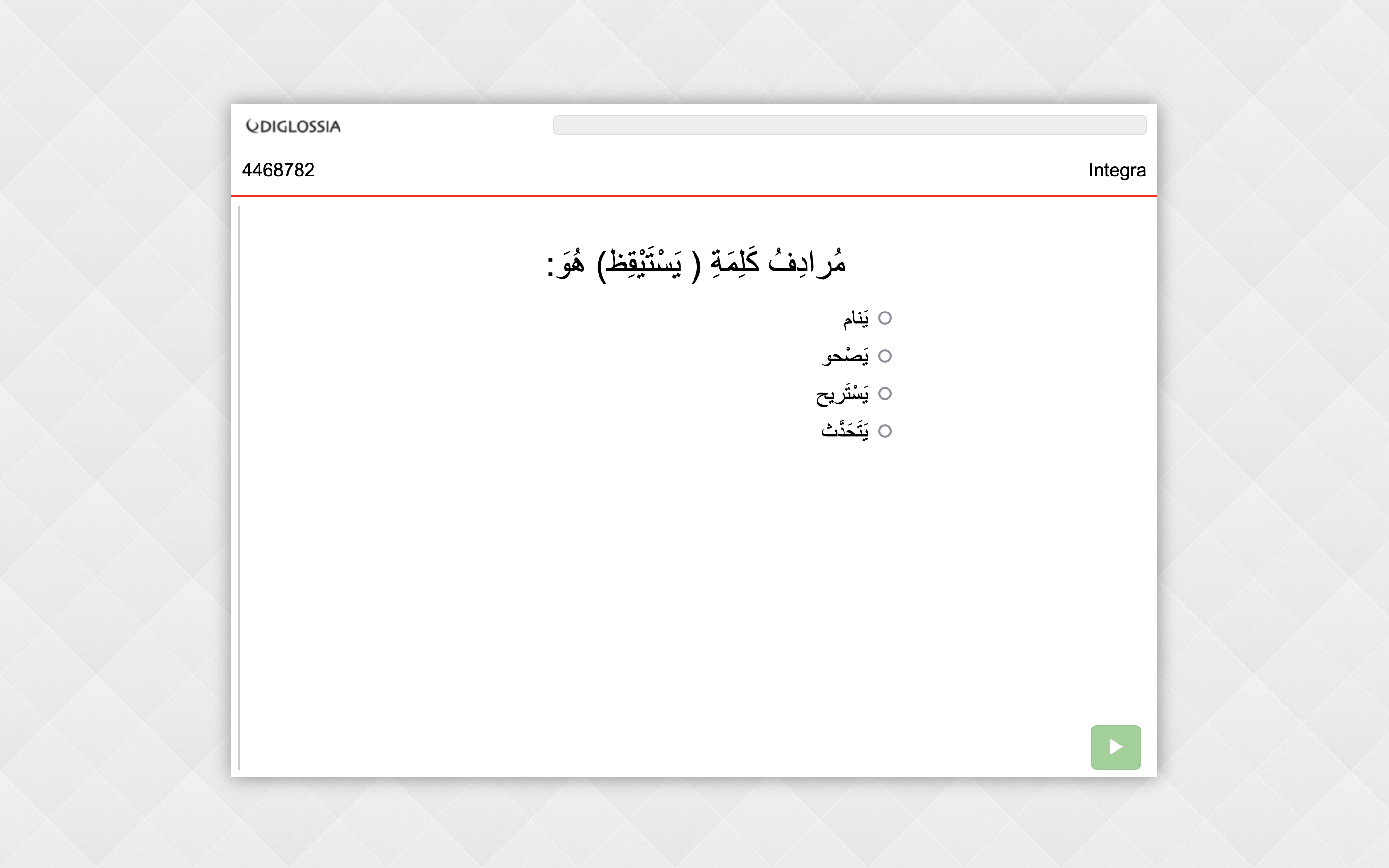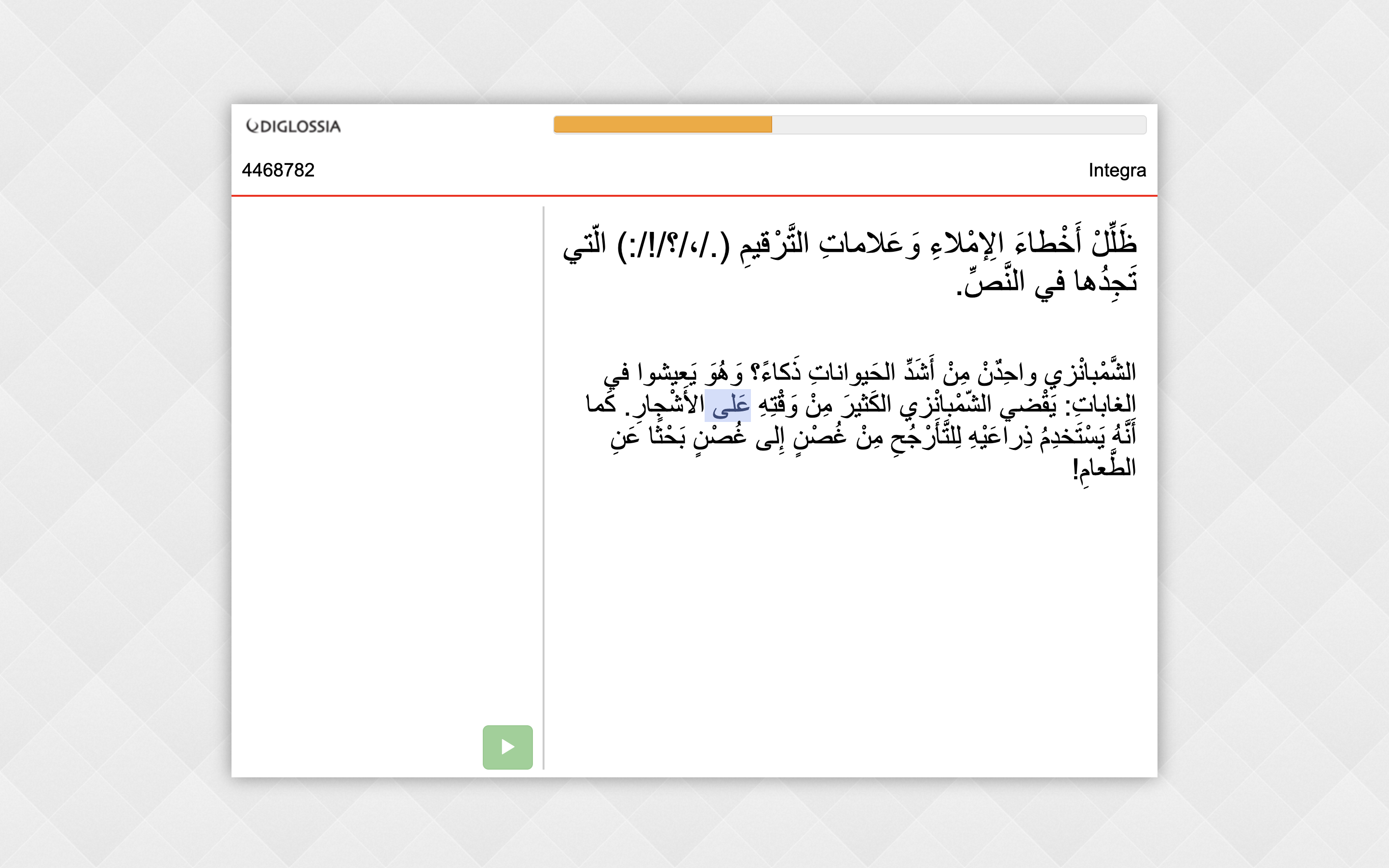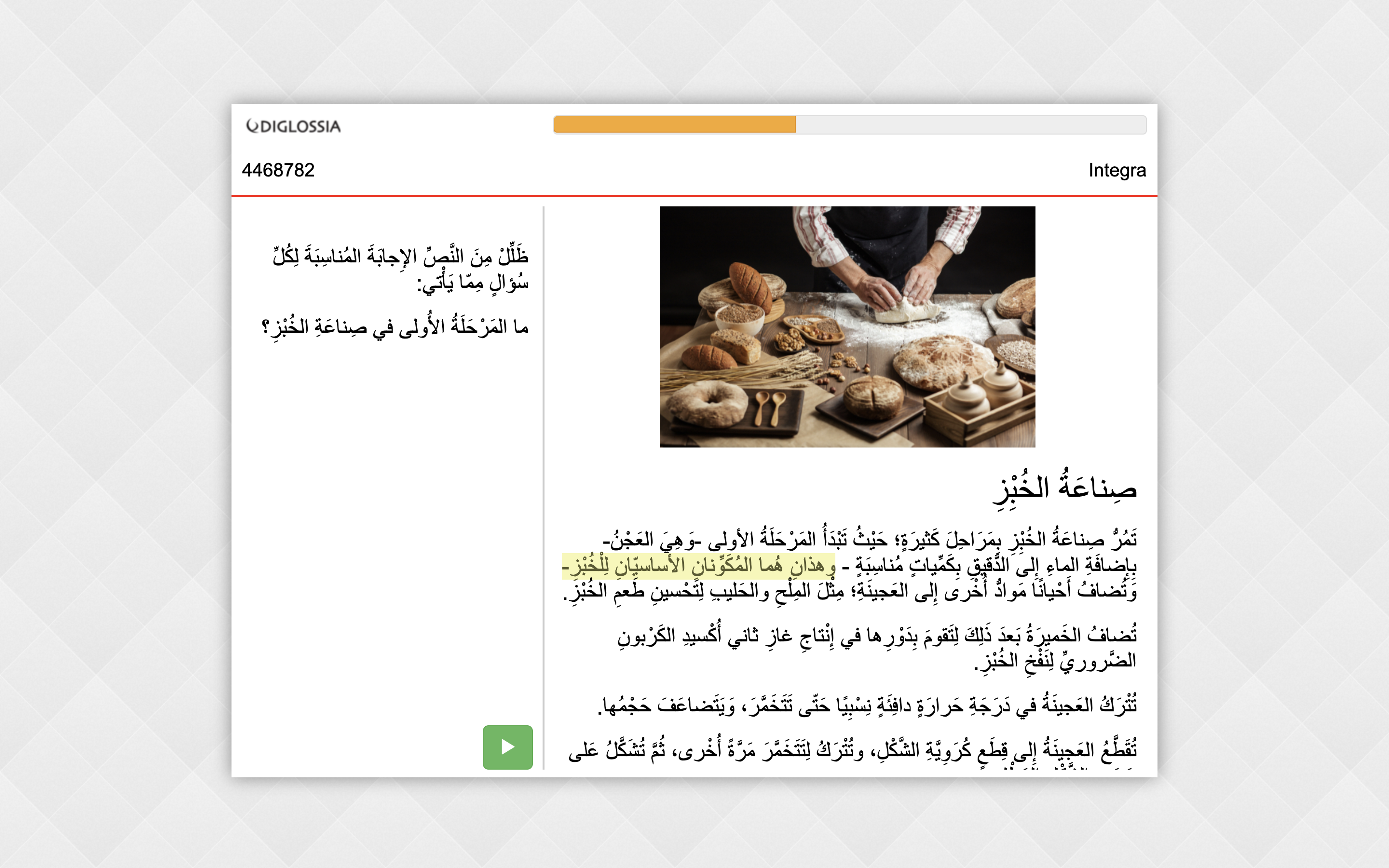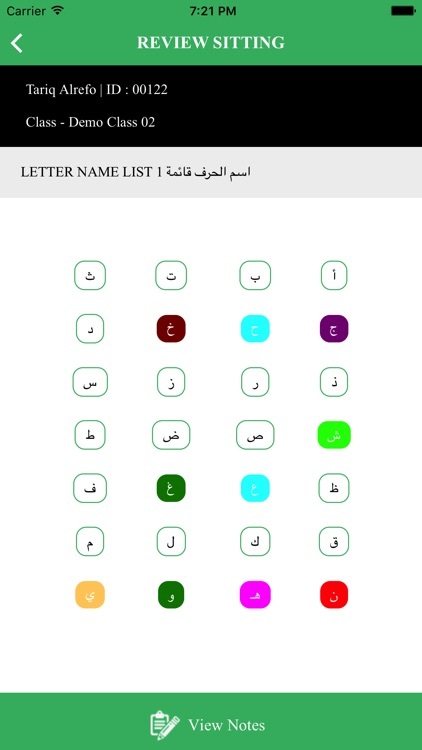How Diglossia Middle East improves language literacy testing in the Middle East region
The Customer
Launched in 2014, Diglossia is a global language company dedicated to changing lives by fostering language development and literacy throughout the world. Diglossia's suite of language assessments provide valid and reliable data to make informed decisions when evaluating language program effectiveness, adopting new curricula, and targeting professional development needs.
Diglossia was founded with a dedication to promoting Arabic literacy in the MENA region. In an effort to address the need for standards-based Arabic literacy assessments, Diglossia partnered with The Arab Thought Foundation and the Aribi21 Project in the development of Mubakkir, the first online test to measure literacy development in Arabic early language learners. The test is based on the Arabic Reading Level Standards developed by Dr. Hanada Taha of Zayed University and can be used by both native and non-native speakers. We also offer TALA, the first Arabic Language Arts assessment designed for native speakers. TALA tests vocabulary, reading and writing against the World Language Initiative Arabic standards. Other offerings include Lexica vocabulary and placement assessments for both English and Arabic speakers.
The Challenge
DDiglossia had their testing platform running as part of a set of VMs running Docker Swarm cluster running three different products – Mubakkir, Tala and Rater on third party provided servers. It was not a very mordernized architecture and faced problems in scaling, was not resilient, and no fault tolerance was built in. Further the security of the platform was not up to the standards required by an education platform provider holding student and other PII data.
The servers were hosted in the United States, whereas the client base was mostly in the Middle East. Without an effective Content Delivery Network in place, latency and jitter played havoc on test experiences. With the design limitations of the platform, the number of students that could be tested simultaneously was very limited, as was the ability to provide isolation for newer customers signing up. We were engaged to modernize the applications and platform to make it secure, resilient, fault tolerant and scalable to test hundreds of thousands of students.
The Solution
The first phase of the project was to move the application as it was to the eu-central-1 region; this gave the ability to integrate initial security requirements and to provide CDN's and also have better visibility into the working of the application. The next step was to redraw the architecture completely, in terms of infrastructure, security, availability, resilience, fault tolerance and all our AWS Well Architected practices, and as far as possible use native components and services available from AWS. The most important design decision was to adopt Kubernetes, by extension Elastic Kubernetes Service from AWS as the platform. It was also decided to go serverless, and so EKS with Launch Type Fargate was chosen. We then moved the workloads to me-south-1 Region, closer to region where the actual testing took place. We engaged with the CTO and the developer team at Diglossia to improve the application architecture and worked as a team to optimize the application for the new architecture. The complete architecture was built using IaC with Terraform, and deployments across environments are automated with CodeCommit, CodeBuild, CodeDeply etc.
The east-west traffic was controlled and secured with the help of AWS App Mesh To enhance operational and reporting capabilities, AppMesh is being used. Integrations with Hashicorp Vault and Grafana provides secrets management, authentication, authorization and observability.
Independent load and security testing has been conducted – and the platform is easily scalable to more than 100,000 simultaneous student tests (test size). The system is being used by educational authorities in the UAE, like the ESE and ADEC, apart from entities like Unicef. Contract for a new testing series with an educational provider in the UAE has been signed and a parallel implementation in the UAE region is expected soon.
The Result - Technology
The outcome of the project was to have a stable, scalable platform with the ability to host multiple customers in an isolated manner providing testing services to educational and Not for Profit institutions. The concurrent load of students logging in had to meet a threshold of 20,000 at any point in time, although average numbers is expected to be 10,000. This was tested and found to be scalable to levels beyond the expected values.
Overall, the TCO of the platform has significantly reduced, with much larger number of students being able to be tested simultaneously, and the ROI has sharply increased, due to improved customer satisfaction levels, and the ease with which new customers can be onboarded to the platform.
Customer Testimonials
UNICEF Jordan contracted Diglossia to use their Arabic Assessment Application to support children who could not read after the COVID pandemic. The World Bank had already cited that in Jordan only 52% of students could read and comprehend a simple sentence at the age of 10.
UNICEF worked with an international educational consultant company to develop a reading recovery programme. This programme was supported with regular E-Assessment provided by Diglossia. Diglossia team worked closely with UNICEF to develop a bespoke set of tests designed to fit with the reading recovery programme. All the assessments were approved by the Ministry of Education in Jordan. Crucial to UNICEF values was to have a system that responded to specific programming needs and also complied with data protection processes.
The committee of Emirates National Schools (ENS) sponsored and supported the development of TALA, the Test of Arabic Language Arts. The partnership between ENS and Diglossia has been a collaborative and positive relationship that created the first standards-based assessments for native Arabic. In addition to the assessments, ENS and Diglossia have worked together to create and improve the reporting and data analyses. - Ms. Ameena Taleb Abdulla, Head of National Curriculum, Emirates National Schools
 |
 |
 |
 |
 |
 |
“Diglossia was operating a platform that was quite limited in our ability to scale due to the constraints of the local data centers and the varied usage of our testing apllications - heavy during school terms, but hardly any usage during the holidays. The move to AWS and the modernization that were able to do with Integra Technologies as our go-to partner changed our business entirely. The platform is now extremely scalable, reslient and able to cater to multiple customers, with new customer platform onboarding taking just minutes. No only did we see improved business revenues, we saw customer statisfaction of our platform rise dramatically.”
- Mimi Jett, CEO, Diglossia Middle East
“"Zayed University is very happy to partner with Diglossia to implement a new vocabulary test suitable for placement and ongoing measurement of progress in vocabulary growth." ”
- Dr. Marilyn Roberts, Acting Provost at Zayed University
